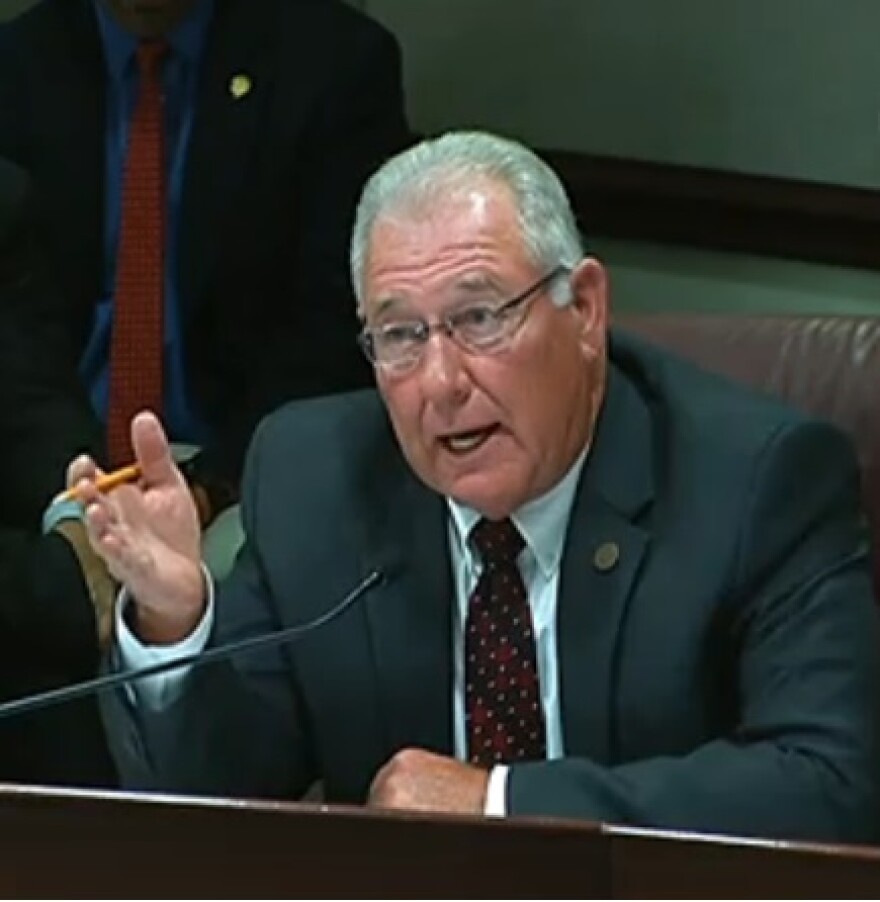Making sure former inmates have a fair shot when they leave the prison system could be a legislative goal in 2016. Some top Florida lawmakers say they’ve heard some horror stories of people getting sent back to prison over minor infractions.
When an inmate is released from prison, they’re placed on a probationary period. There are those who knowingly violate their probation, but there can be instances where that’s unintentional.
That’s according to Sen. Joe Negron (R-Stuart), who listed off a series of what could be considered “technical violations” to a probation officer.
“A technical violation would be someone who’s supposed over a weekend, they’re supposed to remain at home,” he said. “And, they’re supposed to be home from 7 to 7, and it’s 7:02 and they happen to be in the driveway, and they’re two minutes late. A technical violation would be, they were supposed to make a $30 a month restitution payment, and it’s due on the first of the month, but they didn’t have the money on the first, so they paid it on the second…those kinds of things…things that are technical in the probation order.”
Negron was speaking to Kim Schultz, a longtime Miami probation officer, during a recent Senate confirmation hearing of Florida Department of Corrections Secretary Julie Jones.
Negron wanted Schultz, who was there to talk about pay raises, to expand on what the policy was for such incidences. Schultz says in her experience, it’s usually up to the probation officer and the supervisor.
“For me, my concern is if somebody owes restitution, to pay the restitution,” she said. “And, I think that’s the way most of the probation officers feel. The way I look at it is, we help this person get a job, we encourage them, we make them accountable for their actions. And, we help them to pay their monies every month. So, when it comes to something like that, I don’t see the officers are going to file a violation report. It’s more work.”
And, she adds in cases, where the offender is scheduled to report every month, she uses discretion as well.
“So, for example, let’s say he didn’t show up, and I’ve had offenders where I’ve supervised them for awhile,” added Schultz. “They know me, and if they’re not coming in, I know there’s something going on. So, if the officer has a manageable caseload and they can build a rapport with that offender, then they don’t look to do violations right away. They look to work with that person.”
Sen. Greg Evers (R-Baker) also grilled Schultz on how those determinations are made. He says he knows of instances where someone may be doing well and trying to get back on their feet, when something bad happens.
“And, it could be in the case of a traffic violation that winds them back up in prison, and that’s not right to knock somebody’s feet and they have start at ground zero again to rebuild and go back to where they were a part of our society, where a normal person would only have to pay a fine, and that’s not right,” said Evers.
Evers says in one particular case, a child of a person in his district was having surgery on a Friday—the day he was supposed to report to his probation officer.
“He called and told the officer, and she said, ‘okay, that’s fine. Come in, like next Friday or next Monday,’” Evers stated. “He didn’t come in on Friday because he had to work late at his job. So, he comes in on Monday. Well, that happened to be her day off. So, through the course, he was actually violated. He’s been sitting in jail for three months. He has lost his job. Tell me, how that was right?”
Evers posed that same question of Prison Chief Julie Jones. She says while she’d have to look into that particular circumstance, she’s already trying to put protocols in place to give guidance on what counts as a technical violation.
“We have been working very diligently corrections, probations, community corrections staff, to look at alternative sanctions and these alternative sanctions are options given to the judge who ultimately makes the decision on whether someone goes back to prison or not, giving them tools in lieu of incarceration to affect behavioral change,” Jones replied.
Jones says she hopes a bill can be put forward to have that “Alternative Sanctions Program”—a pilot in some areas of the state—codified into law.
For more news updates, follow Sascha Cordner on Twitter: @SaschaCordner.






